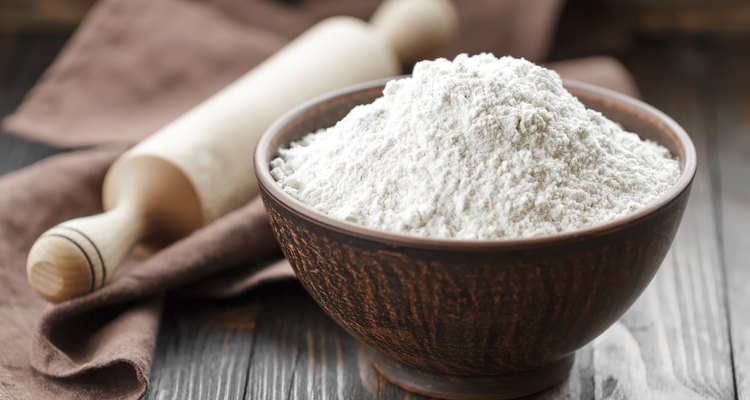
YelenaYemchuk/iStock/Getty Images
Most all-purpose flour found in grocery stores is enriched, which means nutrients lost during the processing procedure are added back into the flour. Products labeled as enriched must contain no less than 10 percent more of nutrients than the same products not labeled as enriched. The FDA requires that enriched flour contain a certain amount of iron, thiamin, riboflavin, folic acid and niacin. Dietary reference intake, or DRI, percentages listed are for ¼ cup of enriched, white all-purpose flour and apply to adults under age 50.
Calories
A ¼ cup serving of all-purpose white flour contains 114 calories. Approximately 85 percent of the calories in all-purpose flour come from carbohydrates, of which there are 24.9 g per cup. Nearly all of these carbohydrates are starch, as one cup of all-purpose flour contains less than .1 g of sugar and less than 1 g of fiber. This is less than 5 percent of the DRI for fiber.
Protein and Fat
The remaining calories in all-purpose flour come from the 3.2 g of protein and .3 g of fat per cup. Like most plant-based foods, all-purpose flour is not a complete protein because it contains only trace amounts of certain essential amino acids. Essential amino acids are those amino acids that must be included in the diet, as they are not produced by the body. The 3.2 g of protein in all-purpose flour supplies less than 8 percent of the DRI for both men and women.
Iron
Because iron is added to enriched all-purpose flour, one cup provides 18 percent of the DRI for men. However, even when enriched with iron, one serving only provides 8 percent of the DRI for women, who require more than twice as much iron per day than men. All-purpose flour that is not enriched supplies only 5 percent of the DRI for iron for men and 2 percent for women.
Other Minerals
All-purpose flour contains only small amounts of most minerals. A ¼ cup serving provides less than 6 percent of the DRI for calcium, magnesium, zinc, potassium, phosphorus and copper. One mineral that is present in higher amounts in all-purpose flour is selenium. One serving provides 19 percent of the DRI for this mineral, which works as an antioxidant to protect the body from environmental stress.
Vitamins
All-purpose flour only contains more that the 10 percent of the DRI for the four vitamins with which it was enriched. One serving provides more than 20 percent of the DRI for thiamine and more than 10 percent of the DRI for riboflavin, folic acid and niacin. One serving of all-purpose flour supplies less than 3 percent of the DRI for all other B vitamins and vitamin C. One serving also provides less than 1 percent of the DRI for all four fat- soluble vitamins: A, E, D and K.
Related Articles

Chicken Quesadilla Nutrition Information

What Is the Nutritional Value of Wheat?

How to Iron Cotton Clothing

The Average Weight of a Boiled Egg

Chemicals in Enriched Flour
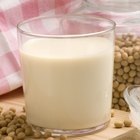
Is Soy Milk Casein-Free?

Grilled Mahi Mahi Calories

Can White Gravy Be Made With Almond ...

How to Iron Dress Blues

How Much Whole Grain Should You Eat a ...

What Is the Nutrition for Cranberry ...

What Is the Nutritional Value of Milk?
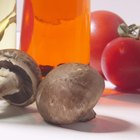
Mineral Oil Vs. Olive Oil
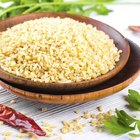
Bulgur Vs. Farro
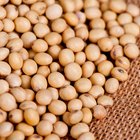
Is Soy Flour Healthy?

Does Flour Get Old or Go Bad?
How Long Can Flour Be Stored in Mylar ...

How to Stiffen a Shirt

How to Wash Collar Stains on a Leather ...

What Is 916 in Jewelry?
References
Writer Bio
Lisa Thompson has been writing since 2008, when she began writing for the Prevention website. She is a holistic health practitioner, nationally certified massage therapist and National Council on Strength and Fitness-certified personal trainer. Thompson also holds certificates in nutrition and herbology from the Natural Healing Institute, as well as a Master of Education from California State University.
Photo Credits
YelenaYemchuk/iStock/Getty Images